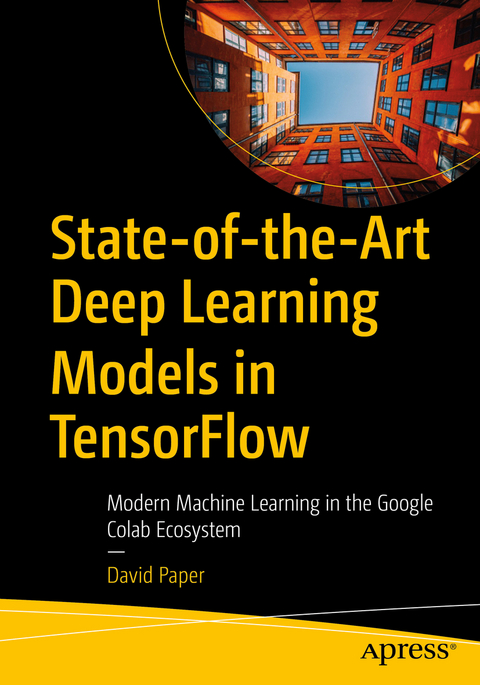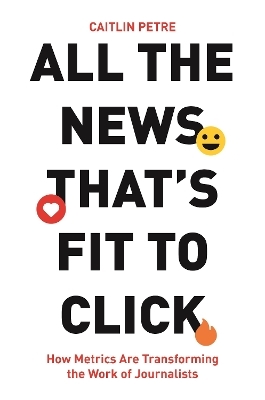
State-of-the-Art Deep Learning Models in TensorFlow
Apress (Verlag)
978-1-4842-7340-1 (ISBN)
The book begins with an example-driven approach to building input pipelines that feed all machine learning models. You will learn how to provision a workspace on the Colab ecosystem to enable construction of effective input pipelines in a step-by-step manner. From there, you will progress into data augmentation techniques and TensorFlow datasets to gain a deeper understanding of how to work with complex datasets. You will find coverage of Tensor Processing Units (TPUs) and transfer learning followed by state-of-the-art deep learning models, including autoencoders, generative adversarial networks, fast style transfer, object detection, and reinforcement learning.
Author Dr. Paper provides all the applied math, programming, and concepts you need to master the content. Examples range from relatively simple to very complex when necessary. Examples are carefully explained, concise, accurate, and complete. Care is taken to walk you through each topic through clear examples written in Python that you can try out and experiment with in the Google Colab ecosystem in the comfort of your own home or office.
What You Will Learn
Take advantage of the built-in support of the Google Colab ecosystem
Work with TensorFlow data sets
Create input pipelines to feed state-of-the-art deep learning models
Create pipelined state-of-the-art deep learning models with clean and reliable Python code
Leverage pre-trained deep learning models to solve complex machine learning tasks
Create a simple environment to teach an intelligent agent to make automated decisions
Who This Book Is For
Readers who want to learn the highly popular TensorFlow deep learning platform, those who wish to master the basics of state-of-the-art deep learning models, and those looking to build competency with a modern cloud service tool such as Google Colab
Dr. Paper is a retired academic from the Utah State University (USU) Data Analytics and Management Information Systems department in the Huntsman School of Business. He has over 30 years of higher education teaching experience. At USU, he taught for 27 years in the classroom and distance education over satellite. He taught a variety of classes at the undergraduate, graduate, and doctorate levels, but he specializes in applied technology education. Dr. Paper has competency in several programming languages, but his focus is currently on deep learning with Python in the TensorFlow-Colab Ecosystem. He has published extensively on machine learning, including Apress books: Data Science Fundamentals for Python and MongoDB, Hands-on Scikit-Learn for Machine Learning Applications: Data Science Fundamentals with Python, and TensorFlow 2.x in the Colaboratory Cloud: An Introduction to Deep Learning on Google’s Cloud Service. He has also published more than 100 academic articles. Besides growing up in family businesses, Dr. Paper has worked for Texas Instruments, DLS, Inc., and the Phoenix Small Business Administration. He has performed IS consulting work for IBM, AT&T, Octel, the Utah Department of Transportation, and the Space Dynamics Laboratory. He has worked on research projects with several corporations, including Caterpillar, Fannie Mae, Comdisco, IBM, RayChem, Ralston Purina, and Monsanto. He maintains contacts in corporations such as Google, Micron, Oracle, and Goldman Sachs.
1. Build TensorFlow Input Pipelines.- 2. Increase the Diversity of your Dataset with Data Augmentation.- 3. TensorFlow Datasets.- 4. Deep Learning with TensorFlow Datasets.- 5. Introduction to Tensor Processing Units.- 6. Simple Transfer Learning with TensorFlow Hub.- 7. Advanced Transfer Learning.- 8. Stacked Autoencoders.- 9. Convolutional and Variational Autoencoders.- 10. Generative Adversarial Networks.- 11. Progressive Growing Generative Adversarial Networks.- 12. Fast Style Transfer.- 13. Object Detection.- 14. An Introduction to Reinforcement Learning.
| Erscheinungsdatum | 03.09.2021 |
|---|---|
| Zusatzinfo | 1 Illustrations, black and white; XXIV, 374 p. 1 illus. |
| Verlagsort | Berkley |
| Sprache | englisch |
| Maße | 178 x 254 mm |
| Themenwelt | Mathematik / Informatik ► Informatik ► Datenbanken |
| Mathematik / Informatik ► Informatik ► Netzwerke | |
| Informatik ► Theorie / Studium ► Algorithmen | |
| Informatik ► Theorie / Studium ► Künstliche Intelligenz / Robotik | |
| Schlagworte | Autoencoders • Colaboratory Cloud • Data Augmentation • Deep learning models • Deep Learning with TensorFlow • Fast Style Transfer • Generative Adversarial Networks (GENs) • Google Colab • Hands-on Transfer Learning • Image Detection • Neural style transfer • Object detection • Python Machine Learning • Reinforcement Learning • TensorFlow 2.x • TensorFlow Datasets • Tensor Processing Unit (TPU) • Tensors • tf.data API • tf.data Datasets |
| ISBN-10 | 1-4842-7340-0 / 1484273400 |
| ISBN-13 | 978-1-4842-7340-1 / 9781484273401 |
| Zustand | Neuware |
| Informationen gemäß Produktsicherheitsverordnung (GPSR) | |
| Haben Sie eine Frage zum Produkt? |
aus dem Bereich


